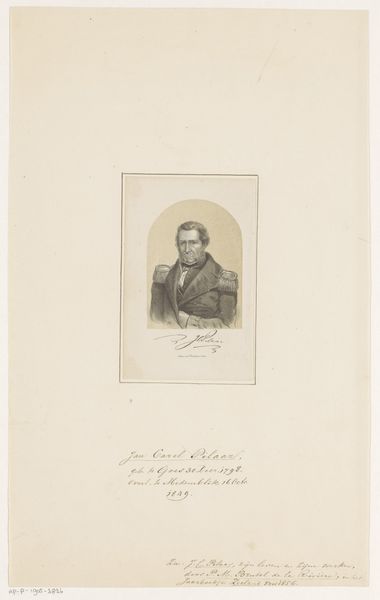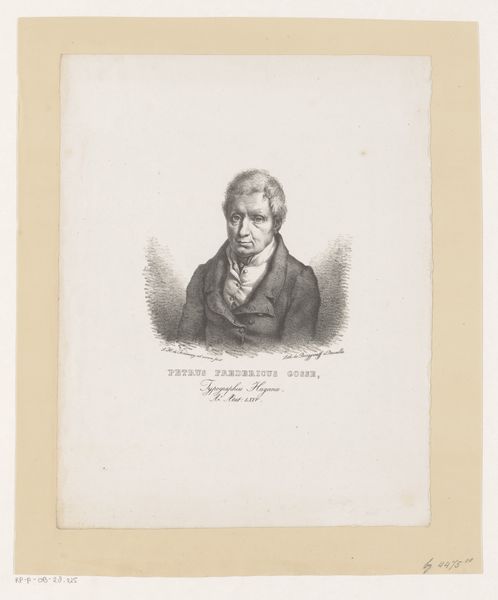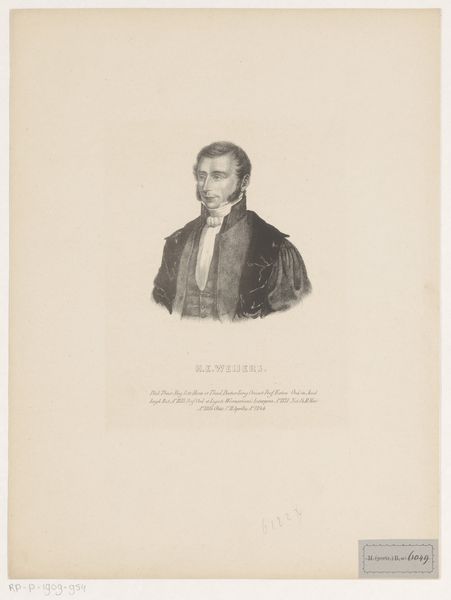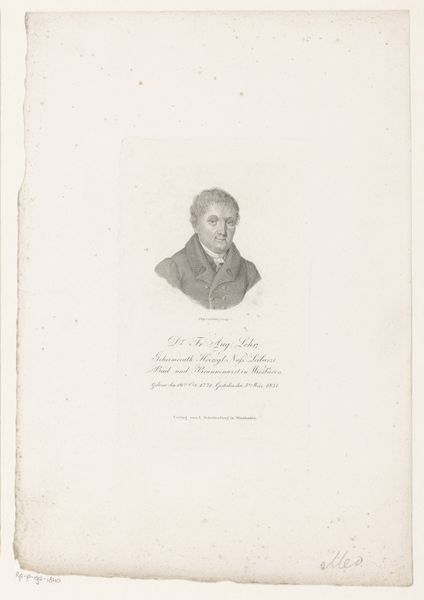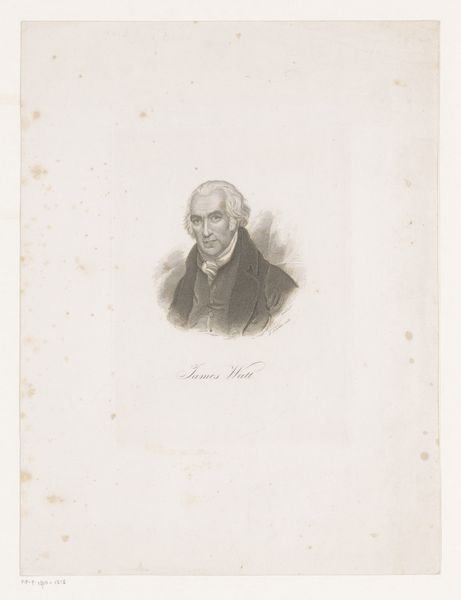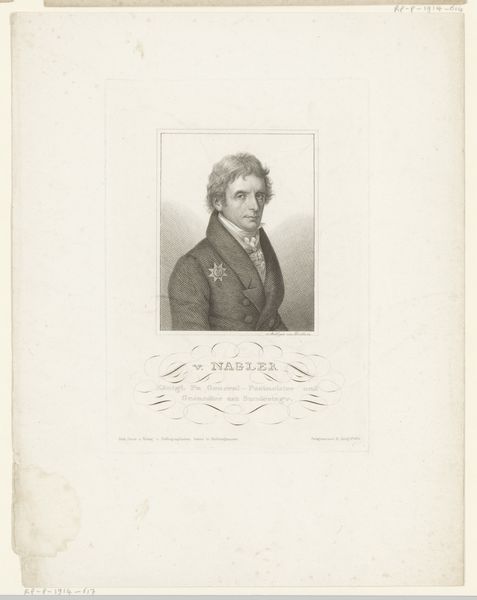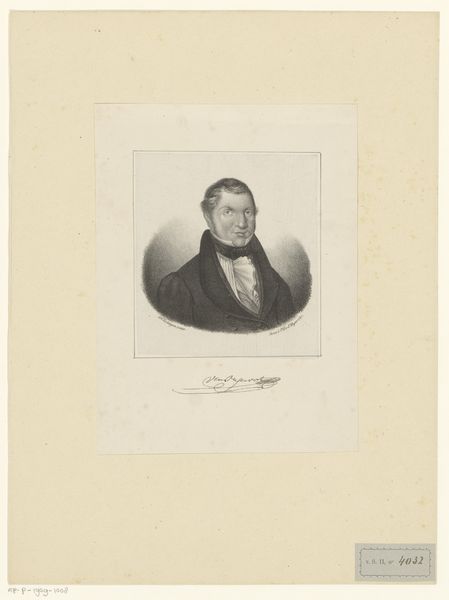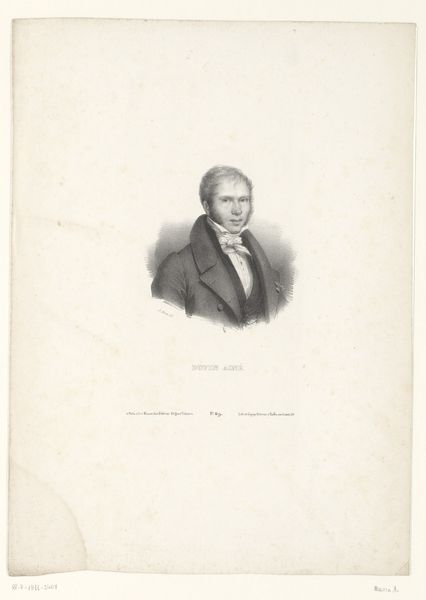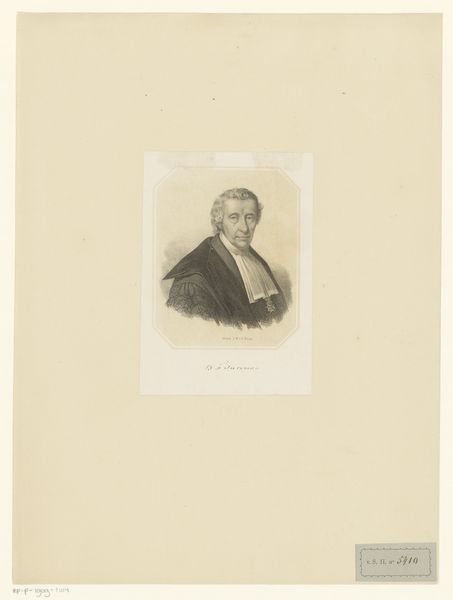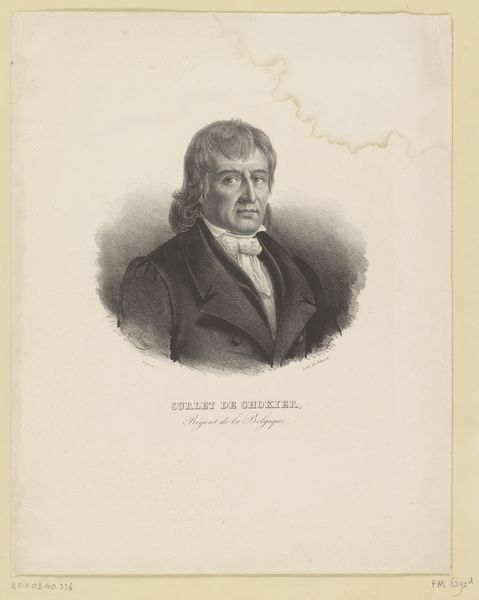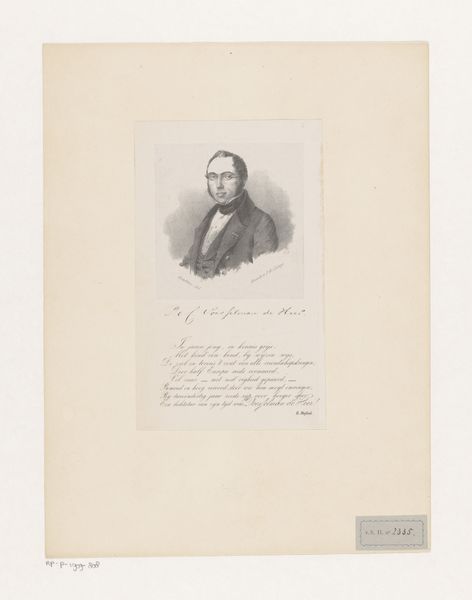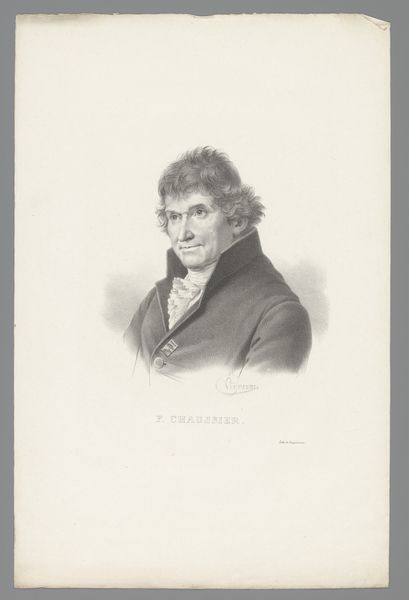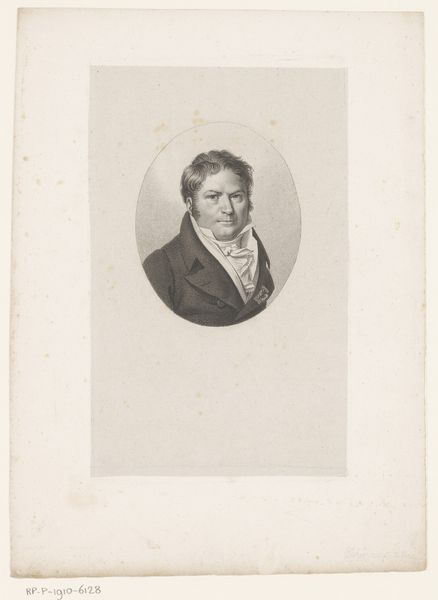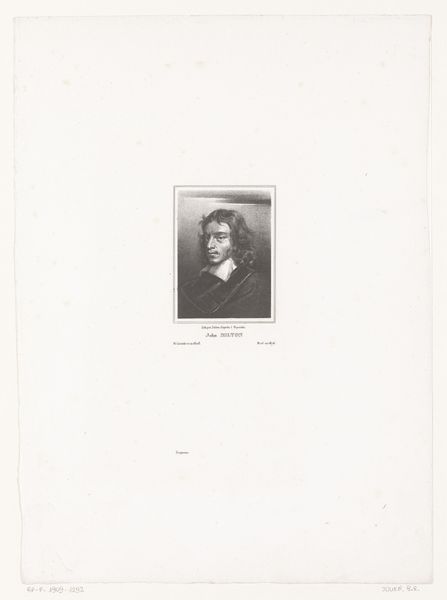
drawing, print, paper, graphite
#
portrait
#
drawing
# print
#
paper
#
romanticism
#
graphite
Dimensions: height 216 mm, width 171 mm
Copyright: Rijks Museum: Open Domain
Editor: This is a portrait of Friedrich Stromeyer, likely created between 1808 and 1861 by Heinrich Lödel, made using graphite on paper as a print. The texture is striking – I can almost feel the grain of the paper. What can you tell me about the materials used and how they relate to the Romanticism movement? Curator: Notice the economical use of graphite and the printmaking process; these were accessible and reproducible mediums. Consider how these choices democratized image production and distribution, potentially reaching a broader audience than a painted portrait could at the time. This accessibility subverts traditional notions of "high art", forcing us to re-evaluate art based on the labor and social impact inherent in the creative process. Editor: That’s a great point about accessibility and subversion of high art! It’s not just about portraying him; it’s also about how the portrait was manufactured. Did Lödel have complete control of the materials he used to produce this drawing? Curator: Absolutely, consider the availability and cost of graphite and paper during this period. Access would dictate the scale and scope of the project. Moreover, printing the image infers collaboration in a workshop environment and division of labour. How does that impact the perception of "authorship" versus individualized expression? Editor: I never thought of the collaborative effort inherent in printmaking. I guess Romanticism isn’t just about individual expression; it’s tied to the socio-economic means that allow it. Curator: Exactly! Reflecting on materials, techniques, and distribution systems reveals power dynamics that were at play when it was made. Considering it from this perspective definitely makes me appreciate this print even more.
Comments
No comments
Be the first to comment and join the conversation on the ultimate creative platform.
